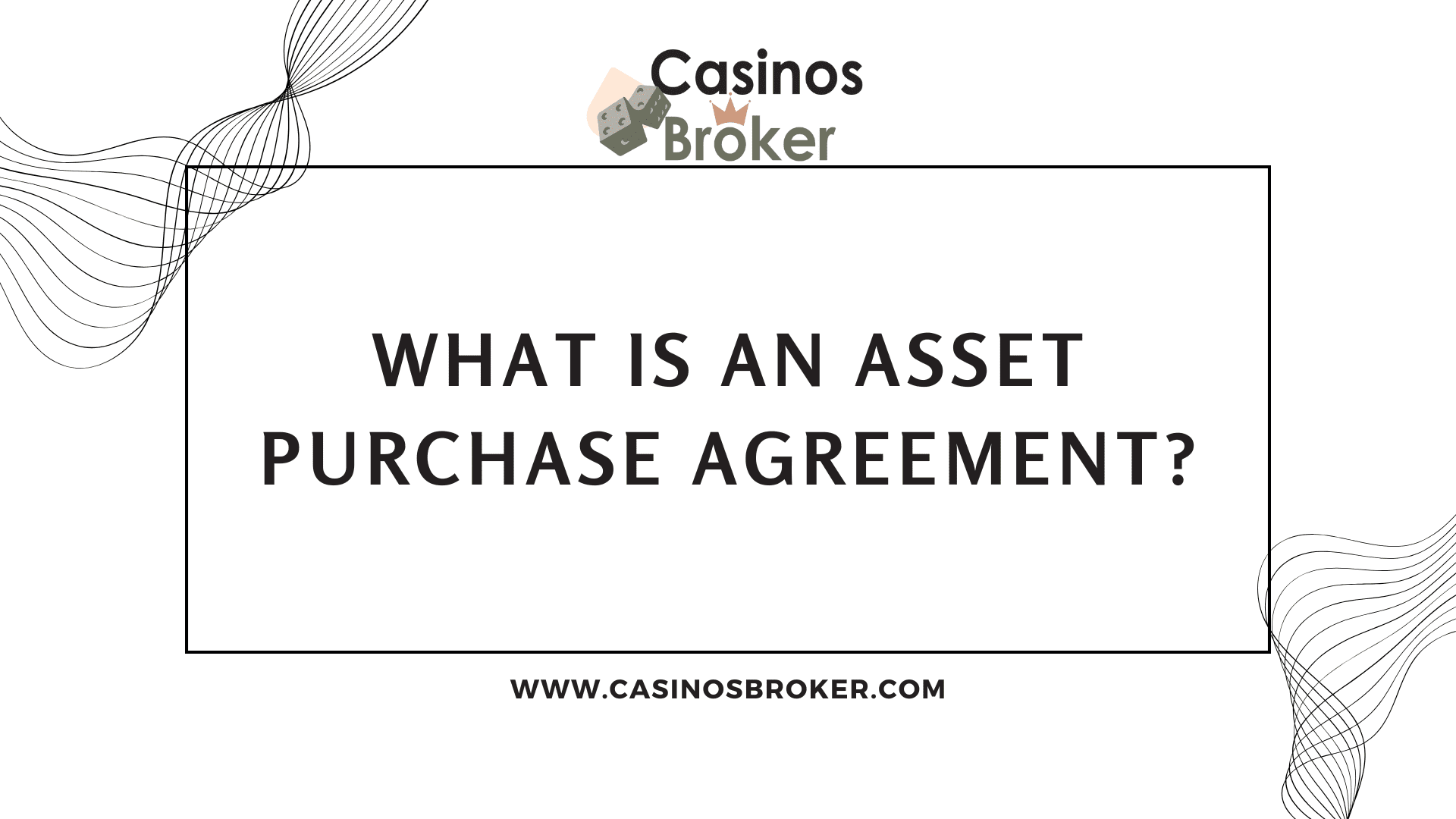Key Takeaways:
| Topic | Summary |
| Definition | An Asset Purchase Agreement (APA) is a legally binding contract for buying or selling a business’s assets. |
| Purpose | Outlines which assets are being purchased, the cost, and delivery terms, ensuring clarity for both parties. |
| Importance | Protects buyers and sellers by documenting terms, aiding in dispute resolution, and serving as a legal reference. |
| Difference from Stock Purchase | – Asset Purchase: Buyer acquires selected assets (physical and intangible), avoiding unwanted obligations.
– Stock Purchase: Buyer acquires company shares, including all assets and obligations, often simplifying the process. |
| Essential Components of an APA | 1. Operative Clause: Defines assets, price, and closing date.
2. Purchase Price: Details payment amount, method, taxes, and contingencies. 3. Representations & Warranties: Ensures transparency about financials and obligations. 4. Termination: Defines procedures for ending the agreement. 5. Dispute Resolution: Outlines methods such as mediation, arbitration, or litigation. 6. Governing Law: Specifies applicable jurisdiction and laws. |
| Legally Binding Criteria | – Offer and Acceptance: Clear terms agreed upon.
– Intention: Both parties consent to legal obligations. – Consideration: Buyer provides compensation. – Capacity: Legal ability of parties to contract. |
| Protection for Buyers & Sellers | – Protects buyers from misrepresentation (e.g., traffic quality) via enforceable warranties.
– Protects sellers from post-sale claims with limitations on lawsuits. |
| CasinosBroker Services | Provides expertly drafted Asset Purchase Agreements and legal documentation for online business transactions. |
| Final Thoughts | Success in buying/selling online businesses requires clear legal agreements and expert guidance, such as services offered by CasinosBroker. |
Key Terms to Include in an APA
- Operative Clause: Assets, purchase price, closing date.
- Payment Details: Method, timing, and taxes.
- Termination Clause: Process for ending the agreement.
- Dispute Resolution: Steps for resolving conflicts.
- Governing Law: Specifies jurisdiction.
The process of purchasing or selling an online business for sale might be tricky. To ease the process and manage possible risks, ensure that you have well-drafted legal documents in place.
An asset acquisition agreement is the primary legal document required when purchasing or selling an internet business. An asset purchase agreement, in its most basic form, specifies which assets will be purchased, how much they will cost, and when they will be delivered.
In this article, we will go into greater depth and explain:
Learn about asset purchase agreements, their significance, the distinction between them and stock purchases, whether they are legally binding, how they protect buyers and sellers, and key terms to include in the agreement.
After reading this article, you will have answers to all of the issues listed above, as well as a greater understanding of asset acquisition agreements in general.
Let’s get started.
Download Asset Purchase Agreement (APA) Checklist
Subscribe to download:
What Is An Asset Purchase Agreement?
An asset purchase agreement is a legally binding contract used in the sale of a firm in which the buyer agrees to buy all or part of the business’s assets from the seller.
Typically, an asset purchase agreement will outline each party’s responsibilities, such as the seller’s commitment to transfer ownership of the assets and the buyer’s obligation to pay for them. The agreement may also stipulate whether the buyer is responsible for assuming any obligations linked with the assets being purchased.
Any asset acquisition agreement should be draughted in clear and succinct language to avoid confusion regarding the sale’s terms.
Why Are Asset Purchase Agreements Important?
An asset purchase agreement is crucial because it helps the parties understand what assets are being purchased and what (if any) obligations the buyer will accept as part of the transaction.
Asset purchase agreements are vital for protecting both parties in the event of a conflict or misunderstanding. Documenting the agreed-upon terms for an asset sale and purchase allows the parties to refer back to the written agreement to understand their rights and obligations.
A court or tribunal considering a disagreement between parties will also look to legal documents, such as an asset purchase agreement, as their initial point of reference.
What Is The Difference Between An Asset Purchase And A Stock Purchase?
Business sales are normally completed in one of two ways: asset purchase or stock purchase.
An asset purchase involves the buyer acquiring all of the business’s assets, including both physical assets (e.g., equipment, motor vehicles, hardware, inventory) and intangible assets (e.g., intellectual property, goodwill, know-how).
A stock purchase involves the buyer acquiring all of the target company’s stock or shares, giving them control of the corporation that owns the assets and runs the business.
There are some significant differences between asset and stock purchases.
For example, in an asset purchase, the buyer can pick and choose which assets to acquire while leaving any obligations that it does not wish to incur. However, transferring or migrating each asset can be a time-consuming procedure.
In contrast, a stock acquisition involves the buyer acquiring all of the target company’s assets and obligations. Because the buyer is purchasing stock or shares of the company rather than specific assets, completing a stock transaction can sometimes be easier.
What Should Be Included In An Asset Purchase Agreement?
At the very least, an asset purchase agreement should specify the asset price, the type of assets being purchased, and the parameters of the transaction. An asset purchase agreement should also specify what happens if one of the parties fails to keep their end of the deal.
A well draughted agreement ensures that both parties are on the same page and helps to avoid misunderstandings during the transaction process.
We’ve compiled a list of some of the most common characteristics found in asset purchase agreements.
Operative Clause
The operative clause (also known as the sale and buy clause) of an asset purchase agreement normally specifies the sort of assets being sold, the purchase price, and the transaction’s closing date.
The operative clause of an asset purchase agreement is an important component of the agreement since it clearly states the major parameters of the transaction. The careful draughting of this clause can help to guarantee that the transaction runs smoothly and that both parties are protected.
Purchase Price
Depending on how the business sale is organised, the purchase price clause might be simple (set amount) or complex (if formulae are employed to calculate the ultimate price).
In any event, the purchase price clause will often include information concerning the consideration payable by the buyer to the seller, including:
Include the amount (including taxes), payment method (cash, cheque, bank transfer), payment due date, and any earn-outs or contingent amounts.
Representations and Warranties
In an asset acquisition agreement, the buyer and seller will make specific claims and guarantees about themselves and the firm for sale.
These may include the buyer’s capacity to fund the purchase, the financial state of the firm, the existence of any outstanding liabilities, and the seller’s right to sell the business.
The goal of these representations and warranties is to help guarantee that the buyer receives what they expect from the transaction and to reassure the seller that the buyer is in a position to finish it.
If any of these representations and warranties are found to be untrue, the aggrieved party may be able to pursue legal action against the other. As a result, both purchasers and sellers must carefully analyse any statements and guarantees before signing an asset purchase agreement.
Termination
Terminating an asset purchase agreement can be a complicated process, so your agreement must provide a clear termination mechanism.
A party may desire to terminate an agreement for a variety of reasons, including the other party’s serious breach of the contract or a change in circumstances that renders the sale impossible to complete.
In other situations, the parties may simply agree to mutually end the agreement by notifying each other.
On the other hand, if one party wishes to end the agreement without the consent of the other, they must follow the precise termination processes outlined in the contract. The party seeking to terminate should also be aware of any break fees or other compensation owed to the opposing party in the event that the agreement is terminated.
Dispute Resolution
While most people enter into business sales with the greatest of intentions, misunderstandings sometimes occur, and things can quickly spiral out of control.
This is where dispute resolution clauses come in useful.
Disputes can be settled in a variety of ways, depending on the gravity of the situation and both parties’ willingness to compromise.
A simple chat might often be enough to clear up any misunderstandings and reach an agreement that everyone can live with.
However, if the dispute is more serious, mediation or arbitration may be required. This entails bringing in a neutral third party to assist negotiations and attempt to reach an agreement that is acceptable to both parties. In some circumstances, litigation may be the only option for resolving a conflict, but it should always be viewed as a last resort.
Any asset acquisition agreement should explicitly state how disputes will be handled so that both parties understand what to expect if a problem arises and what procedures must be followed to remedy the issue.
Governing Law
When two parties enter into an asset acquisition agreement, they must agree on the law that will govern the transaction.
This is significant because it determines which court has jurisdiction over any issues that may arise.
The choice of governing law can have a considerable impact on how the contract is interpreted and the parties’ rights. As a result, it is critical for the parties to carefully assess which law should apply and how this may impact the operation of the agreement.

Is An Asset Purchase Agreement Legally Binding?
If the asset purchase agreement is properly draughted and has the relevant contract features, it will be legally binding and enforceable.
For a contract to be binding, the following things must be present:
- Offer and acceptance: There must be a clear offer (i.e., an offer to acquire or sell the business) and acceptance (i.e., both parties’ acceptance, generally via signature).
- Intention to establish legal relations: Both parties must agree to enter into a legal arrangement. This is frequently easy to establish in a commercial setting, such as a business transaction.
- Consideration: In a business sale, the buyer must provide some sort of consideration in exchange for the seller’s pledge to sell the business.
- Capacity: The parties must have the ‘capacity’ under the law to enter into a formal agreement. These requirements vary by country, but typically require individuals to be of legal age (i.e., not minors) and of sound mind.
How Do Asset Purchase Agreements Protect Buyers And Sellers
As previously stated, asset purchase agreements assist safeguard both parties by documenting the agreed-upon parameters of an asset sale and purchase. This allows the parties to look back to the written agreement to clarify their rights and obligations under the contract.
An Asset Purchase Agreement may safeguard a buyer if they discover that the seller misled them about certain features of the business assets (for example, the quality and/or quantity of the business’s internet traffic). If this occurs, the buyer can turn back to the Asset Purchase Agreement to determine whether the seller exceeded any representations or warranties and what (if any) remedies the buyer has as a result of the violation.
Asset Purchase Agreements may also include provisions to protect sellers from future claims against the company. For example, the Asset Purchase Agreement should limit the buyer’s capacity to sue the seller. These typically include a time imitation (i.e., claims cannot be filed after a certain period of time has passed since the sale was closed) and monetary limits (i.e., the maximum amount the buyer can claim is a specific percentage of the purchase price).
Does CasinosBroker provide Asset Purchase Agreements?
The advantage of purchasing or selling your online business using a platform like CasinosBroker is that we can supply you with an expertly draughted asset acquisition agreement as well as other legal documentation that will be completed for you.
Final Thoughts
Purchasing or selling an online business is an exciting (but challenging) affair.
While having the necessary legal papers is important, having the appropriate individuals on your side to guide you through the process is also critical to a successful exit.
Contact us today to learn more about how CasinosBroker can help you sell your online business.
Download Asset Purchase Agreement (APA) Checklist
Subscribe to download:





